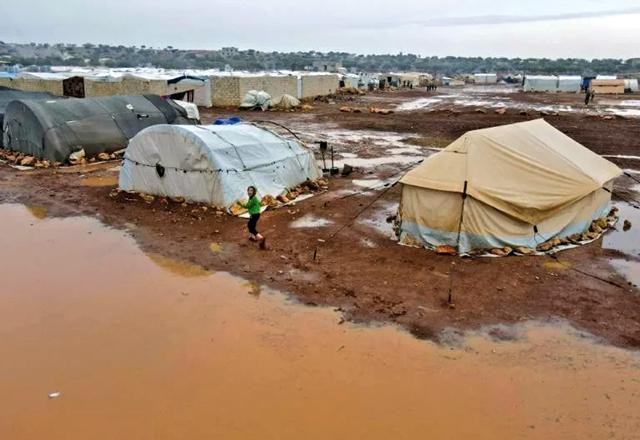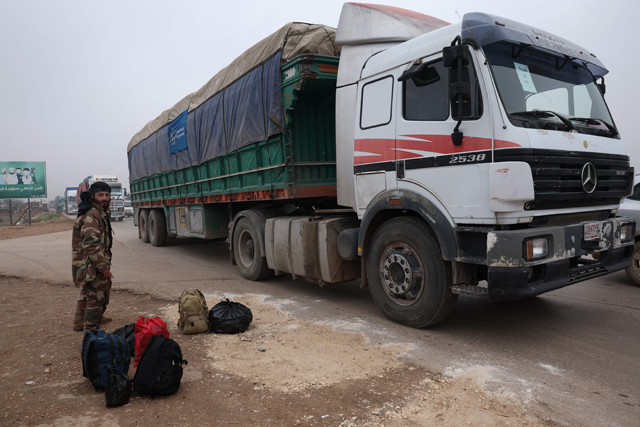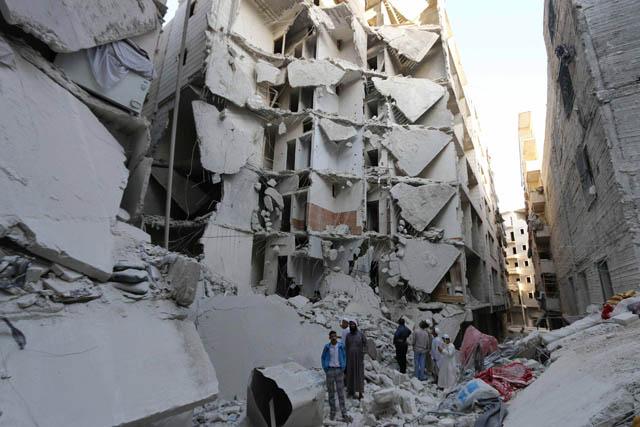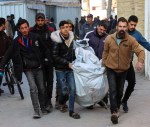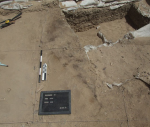You are here
UN renews aid to Syria opposition areas as Russia abstains
By AFP - Dec 20,2017 - Last updated at Dec 20,2017
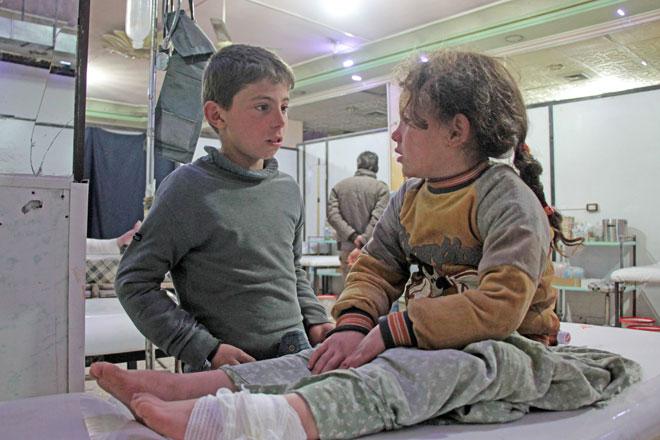
A Syrian boy talks to an injured girl as she lies on an operating bed in an emergency room in the rebel-held town of Douma in Syria’s eastern Ghouta region on Sunday (AFP photo)
UNITED NATIONS, United States — The UN Security Council on Tuesday voted to renew cross-border aid deliveries to Syria’s opposition-held areas for one year, but Russia abstained and said the relief operation should wind down.
Russia had demanded changes to the aid operation that has allowed since 2014 convoys to cross into Syria from Turkey and Jordan without the approval of the government in Damascus.
Russian Deputy Ambassador Vladimir Safronkov argued that the situation in Syria had “changed radically” over the past three years and that cross-border aid was “a legacy of the past”.
“We think it is important to gradually draw down this rudimentary scheme which has worked for Syria’s division,” said Safronkov.
The resolution put forward by Egypt, Japan and Sweden was adopted by a vote of 12 in favour, with Russia, China and Bolivia abstaining.
The United Nations maintains that the cross-border deliveries are a lifeline to Syrians living in rebel-held territory because the government in Damascus has heavily restricted aid shipments to those areas.
More than 13 million people need humanitarian aid in Syria, now in its seventh year of war.
Cross-border aid reaches one million Syrians per month, on average, according to UN aid officials.
The adoption of the resolution extending the aid operation came after Russia used its veto power to block a chemical weapons investigation, triggering a major clash at the council among big powers over Syria.
Russia has used its veto 11 times at the council to thwart action directed at its Syrian ally.
Russia wants aid
scheme to end
Moscow had argued that the aid operation undermines Syria’s sovereignty because aid agencies must notify Damascus, but not seek its permission, for the deliveries inside Syria.
Safronkov said aid agencies must return to the “traditional” approach of working with the Syrian government on providing humanitarian assistance to the entire country.
The United Nations must “make plans for a gradual withdrawal from this cross-border scheme”, he said.
Syrian forces have made major military gains since Russia’s intervention in the war in 2015, retaking large swathes of rebel-held territory.
After Russia complained that cross-border aid was falling into the hands of “terrorists”, the council agreed to ask UN Secretary General Antonio Guterres to review the operation in six months and recommend ways to strengthen monitoring.
Welcoming the adoption, US Deputy Ambassador Michele Sison stressed the aid was of “utmost importance to reduce the suffering in Syria”.
France said humanitarian aid was critical for Syrians and singled out the crisis in Eastern Ghouta, a rebel-held area near Damascus that has been under government siege.
With 400,000 people trapped with no access to food and medicine, Eastern Ghouta is “a new Aleppo in the making”, said French Ambassador Francois Delattre, referring to Syria’s second city, which fell to government forces after months of siege.
“The Syrian regime continues bombing its population, using hunger as a war tool,” said Delattre. “This constitutes a war crime.”
Close to 3 million Syrians live in besieged or hard-to-reach areas, with little access to humanitarian aid.
Related Articles
UNITED NATIONS, United States — Cross-border humanitarian aid to Syria remains vital, the United Nations secretary general said in an intern
BEIRUT — International aid groups warn that millions of people in northern Syria could be completely cut from lifesaving assistance should a
The UN Security Council on Monday authorised humanitarian access without Syrian government consent at four border crossings into rebel-held areas from Turkey, Iraq and Jordan, although Syria has warned it deems such deliveries an attack.


